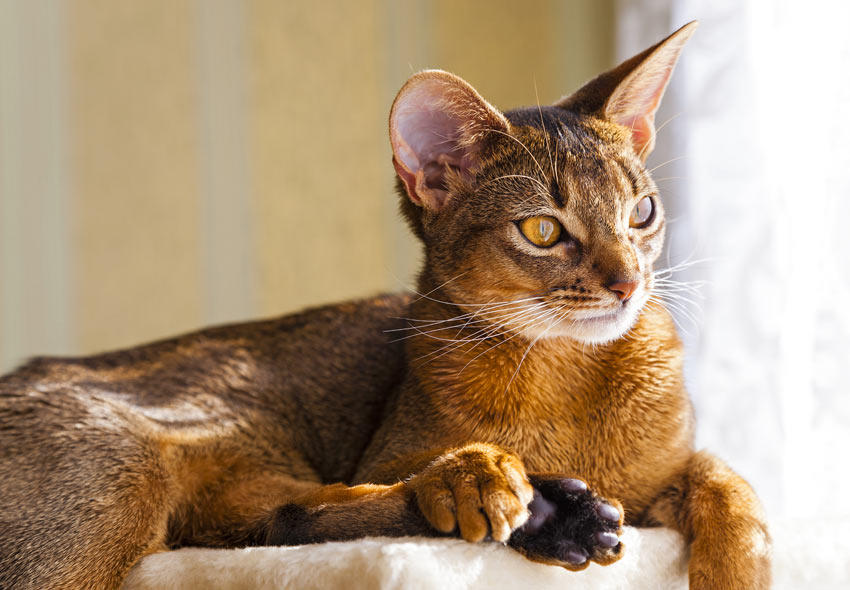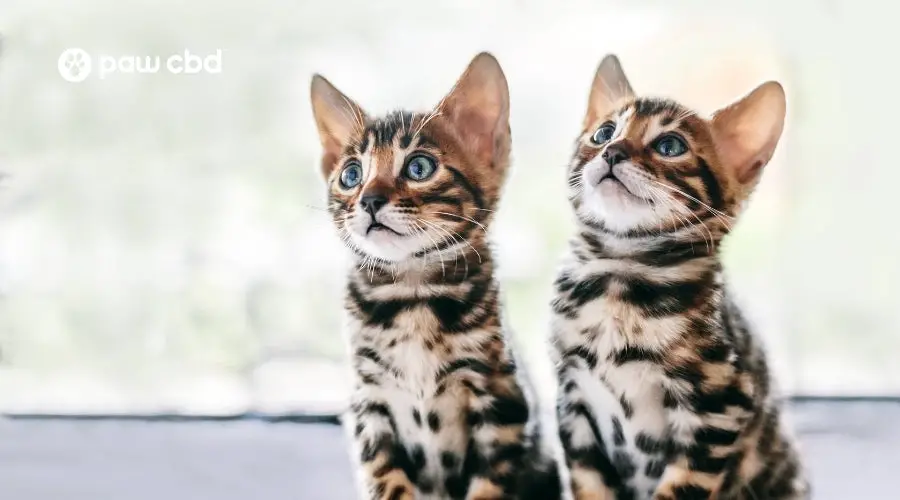To choose the right cat breed, consider your lifestyle and the cat’s personality traits. Research various breeds to find a good match.
Choosing the right cat breed is crucial for a harmonious relationship. Different breeds have distinct personalities, activity levels, and grooming needs. For instance, some cats are highly social and love attention, while others are more independent. Think about your daily routine and how much time you can dedicate to your pet.
Consider whether you want a playful, energetic cat or a calm, laid-back companion. Researching breeds thoroughly ensures you find a cat that fits well with your lifestyle and preferences. This helps both you and your future pet enjoy a happy and fulfilling life together.
Introduction To Cat Breeds
Choosing the right cat breed is very important. Different breeds have different needs. Some cats love to play. Others like to stay quiet. Knowing the breed helps you understand your cat better. You can provide the best care and environment. A happy cat means a happy home. Researching breeds can help you find a good match.
Why Breed Matters
Breed influences a cat’s behavior and health. Some breeds are more active. Others are more relaxed. Health issues can vary too. Certain breeds may need special care. Knowing these differences helps in choosing the right breed. It ensures a good fit for your family and lifestyle. You can avoid unexpected problems.
Common Misconceptions
Many people think all cats are the same. This is not true. Each breed has unique traits. Some think breed does not matter for health. But, some breeds have specific health needs. Another misconception is that purebreds are always healthy. This is not always the case. It’s important to research and understand each breed.
Assessing Your Lifestyle
Your activity level matters when picking a cat breed. Active people might enjoy cats that love to play. Bengal cats or Siamese cats are good choices. These breeds have lots of energy. Calmer people might prefer a more relaxed cat. Persian cats or Ragdoll cats are very calm. They enjoy lounging and cuddling. Think about how much time you have for play.
Consider the size of your home. Large homes are good for cats that need space. Maine Coons or Abyssinians like to roam. Small apartments are better for less active cats. British Shorthairs or Scottish Folds fit well in small spaces. Also, think about noise levels. Quiet homes suit timid cats. Busy homes might be better for more social cats. Always match your home to the cat’s needs.
Understanding Temperament
Some cats love being around people. They follow you from room to room. These cats need a lot of attention. They enjoy playing and being petted. Other cats are more independent. They might enjoy some alone time. Choose a breed that matches your lifestyle.
Independent cats do not need constant attention. They can spend hours alone and be happy. Breeds like the Russian Blue are good for busy people. More social breeds need more interaction. Siamese cats love being with their humans. Think about your daily routine before choosing a breed.

Credit: www.fluxmagazine.com
Grooming Requirements
Short-haired cats need less grooming. Their fur does not tangle easily. Long-haired cats need regular brushing. Their fur can get mats and tangles. Brushing helps remove loose hair. It also keeps the coat shiny. Short-haired cats are easier to clean. Long-haired cats shed more. They may need more baths.
Cat allergies come from dander. Dander is dead skin flakes. Short-haired cats produce less dander. Long-haired cats produce more. Some breeds are hypoallergenic. These breeds produce fewer allergens. Allergy sufferers might prefer these breeds. Always spend time with a cat before adopting. This helps check for allergies.
Health And Longevity
Selecting the perfect cat breed significantly impacts both the pet’s and owner’s health and longevity. Consider factors like temperament, grooming needs, and potential genetic health issues to ensure a harmonious and healthy relationship.
Genetic Predispositions
Certain cat breeds have genetic health issues. Persian cats often have breathing problems. Siamese cats may develop dental issues. Maine Coons are prone to heart conditions. Knowing these facts helps in making a better choice.
Lifespan Expectations
Cat lifespans vary by breed. Domestic cats often live 15 years. Some breeds, like Siamese, may live up to 20 years. Larger breeds like Maine Coons have shorter lifespans. Understanding this helps in planning long-term care.
Compatibility With Other Pets
Some cat breeds get along well with other pets. Siamese cats are very social and friendly. Maine Coon cats are known for their gentle nature. It’s important to choose a cat breed that matches your other pets’ personalities. Ragdoll cats are also a good option for multi-pet homes.
Introduce a new cat slowly and carefully. Keep the new cat in a separate room at first. Let them sniff each other through a door. Gradually allow short, supervised interactions. Always watch for signs of stress or aggression. Patience is key to a smooth introduction.
Special Considerations
Some cats do not like to travel. Breeds such as Siamese are more adaptable. They enjoy new environments. Consider a cat’s temperament if you travel often. Cats like Bengals can handle car rides better. Always use a secure carrier. Make sure it is comfortable. Provide familiar items like a blanket. This can reduce stress. Plan for regular breaks. Let your cat stretch and use the litter box.
Small spaces can be challenging for some cats. Consider a breed like the British Shorthair. They are more relaxed. Persian cats also adapt well to apartments. Provide vertical space like cat trees. Interactive toys can keep them entertained. Litter box placement is crucial. Keep it in a quiet area. Regular playtime is essential. This prevents boredom and keeps your cat happy.
Popular Cat Breeds
Persian cats have long, beautiful fur. They are known for their sweet and gentle nature. These cats enjoy a calm environment. Regular grooming is necessary to keep their fur tidy.
Siamese cats are very talkative and social. They love interacting with their owners. Their short, sleek coat requires minimal grooming. Siamese cats are playful and active.
Maine Coon cats are large and friendly. They are often called “gentle giants”. Their thick fur needs regular brushing. Maine Coons are good with children and other pets.
Final Thoughts
Choosing the right cat breed can be exciting. Think about your lifestyle. Some cats need lots of attention. Others are more independent. Consider the size of your home. Larger breeds need more space. Small apartments suit smaller breeds. Allergies are important. Some breeds are more hypoallergenic. Do you have kids? Some breeds are more kid-friendly. Research each breed’s temperament and needs. This helps you make the best choice.
New cat owners need useful resources. Books on cat care are helpful. Websites offer tips and guides. Join online forums for cat lovers. These communities share advice. Visit your local veterinarian. They can provide valuable information. Pet stores often have informative brochures. Consider enrolling in a pet care class. Knowledge ensures a happy and healthy cat.

Credit: www.omlet.co.uk

Credit: arapahoelibraries.bibliocommons.com
Frequently Asked Questions
How Do I Decide Which Cat To Get?
Consider your lifestyle, space, and time for care. Research breeds for temperament and needs. Visit shelters to meet cats.
What Cat Breed Suits My Personality?
Choose a cat breed that matches your lifestyle. Active people may prefer Abyssinians. Calm individuals might enjoy British Shorthairs. Social personalities often like Siamese cats. Independent types may appreciate Maine Coons. Research breed traits for the best match.
What Breed Of Cat Is Good For Beginners?
The American Shorthair is ideal for beginners. They are friendly, low-maintenance, and adapt well to various environments.
Which Cat Breed Is The Friendliest?
The Siamese cat breed is often considered the friendliest. They are affectionate, social, and love human interaction.
Conclusion
Choosing the right cat breed is essential for a happy home. Consider your lifestyle and preferences. Research each breed’s characteristics carefully. Talk to breeders or adopt from shelters. A well-matched cat will bring joy and companionship. Make an informed decision to ensure a fulfilling pet-owner relationship.

Hello, this is Frank Swanson, the owner, and operator of Pet Info Hut. I created this website as a way to share my love of pets with the world. I have over 7 years of experience working with animals, and I have a passion for helping people care for their pets. I hope that you find my website useful and informative. Thanks for visiting!
